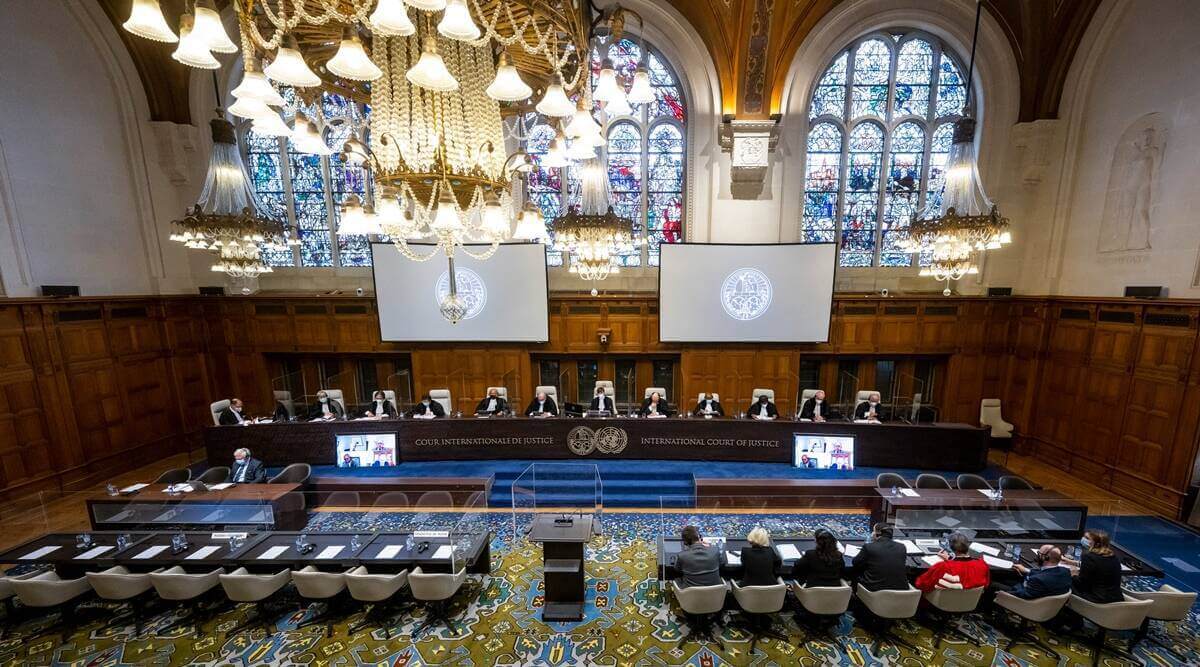The International Court of Justice (ICJ) rejected all preliminary objections and has decided to go ahead with the proceedings of a landmark case accusing the Myanmar military of genocide against Rohingya Muslims.
Presiding Judge Joan Donoghue said in a release dated July 22 that the ICJ had found that it “has jurisdiction on basis of Article IX of Genocide Convention” and that The Gambia’s application was “admissible.” The court added that The Gambia, did in fact, have the standing “to invoke [the] responsibility of Myanmar for alleged breaches of obligations under Articles I, III, IV and V of [the Genocide] Convention.”
Bangladesh welcomes the Judgment delivered by the International Court of Justice (ICJ) on 22 July 2022 on the Preliminary Objections of Myanmar concerning the application or admissibility of the Genocide Convention in the case between The Gambia and Myanmar.
— Ministry of Foreign Affairs, Bangladesh (@BDMOFA) July 22, 2022
When the ICJ began hearing preliminary arguments of the case in February, Myanmar’s representative, Ko Ko Hlaing, argued that The Gambia, the case’s prosecutor, was acting as a proxy for the Organisation of Islamic Cooperation (OIC), which is not a party to the convention and therefore has no legal standing to bring a case. Myanmar had called the move an “abuse of process.”
“No evidence that conduct of The Gambia amounts to abuse of process. No other grounds of inadmissibility either,” the ICJ stated in response to this allegation.
PRESS RELEASE: the #ICJ finds that it has jurisdiction to entertain The Gambia’s Application in the case #TheGambia v. #Myanmar, and that the said Application is admissible https://t.co/1gtekDmfGz pic.twitter.com/4vuadwRw86
— CIJ_ICJ (@CIJ_ICJ) July 22, 2022
The court’s decision was welcomed by the Burmese Rohingya Organisation UK (BROUK). The organisation’s president, Tun Khin, said in a statement on Friday that the ruling was “a great moment for justice for Rohingya and for all people of Burma” and showed that there is a possibility to challenge to the military’s impunity.” “The objections raised by Burma were nothing but a blatant delaying tactic, and we are pleased that this landmark genocide trial can now finally begin in earnest,” the statement added.
Rights groups also reacted positively to the decision. Human Rights Watch said that the court’s decision “should encourage the United Kingdom, Netherlands, Canada, and other concerned governments to support The Gambia’s case through formal interventions to bolster the legal analysis on specific aspects of the Genocide Convention as it relates to the Rohingya.”
The U.N.’s International Court of Justice (ICJ) rejected Myanmar’s objections and allowed the case to prosecute the military for genocide against the largely Muslim Rohingya minority to move forward. pic.twitter.com/YpZzz0QPbO
— Radio Free Asia (@RadioFreeAsia) July 22, 2022
The ICJ case was filed in November 2019 by the Muslim-majority African nation The Gambia. It concerns the Tatmadaw’s operations against the Rohingya in 2016 and 2017, following which more than 730,000 Rohingya Muslims fled Myanmar’s Rakhine State. According to The Gambia, the military’s atrocities during this period constitute alleged violations of the 1948 Convention on the Prevention and Punishment of the Crime of Genocide.
At the time, Myanmar’s erstwhile democratic leader, Aung San Suu Kyi, denied all allegations of genocide and stressed that the military had carried out legitimate counter-terrorism operations. In fact, Myanmar authorities have consistently maintained that the military did not commit genocide or systematically use “disproportionate force” against innocent civilians. Rather, they have only admitted that the forces embarked on a “haphazard” campaign to root out militants and insurgents.
Canada & the Netherlands welcome the @CIJ_ICJ’s decision to dismiss the objections raised by Myanmar.
— Mélanie Joly (@melaniejoly) July 22, 2022
We continue to firmly stand with the Gambia in its efforts to hold Myanmar accountable for genocide against the Rohingyas and reaffirm our intention to intervene in this case. pic.twitter.com/xeGIwBNUlw
Following this, the ICJ, in 2020, ordered Myanmar to take immediate measures to protect its Rohingya community. In a unanimous ruling by the 17-judge panel, the court stated that the Rohingya community is facing a continuous threat and Myanmar must act to protect them. The court stated that Myanmar “must take all measures within its power to prevent all acts” prohibited under the 1948 Genocide Convention. The court also ordered Myanmar to report back within four months.
By dismissing the Myanmar military’s objections, the ICJ has paved the way for The Gambia’s allegations against the military government to now be examined. Myanmar is now legally bound to submit its response to The Gambia’s main arguments; the proceeding is expected to take years.

